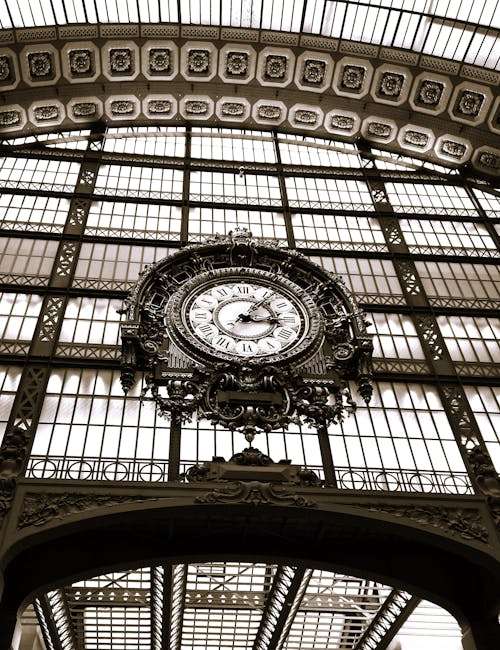The History of French Cuisine: A Delicious Journey
French cuisine is more than just food; it’s an art form, a way of life, and a cultural phenomenon that has influenced culinary practices worldwide. From its medieval origins to the modern-day gourmet dining experience, the journey of French cuisine is as rich and diverse as the flavors that define it. Let’s dive into this delectable history! ??
Table of Contents
1. Medieval Origins: Where It All Began
2. The Renaissance Revolution: A New Culinary Era
3. The French Revolution: Democratizing Cuisine
4. 19th Century: The Rise of Haute Cuisine
5. Modern Day: Innovation Meets Tradition
6. Conclusion: A Never-Ending Feast
7. FAQ
Medieval Origins: Where It All Began ?
The roots of French cuisine can be traced back to the Middle Ages, a time when the culinary landscape was dominated by rich, hearty dishes and the heavy use of spices. During this era, food was a status symbol, and grand feasts were the hallmark of nobility. The influence of regional ingredients like meats, cheeses, and grains began to shape local specialties that still exist today.
In these early days, France’s culinary repertoire included dishes like stews and roasted meats, often seasoned with spices imported from the East. The use of sauces began to emerge, laying the foundation for the complex flavors that would define French cooking in the centuries to come.
The Renaissance Revolution: A New Culinary Era ?
The Renaissance was a period of transformation and innovation, not just in art and science, but also in the kitchen. This era saw the introduction of new ingredients, such as tomatoes and potatoes, which were brought back from the New World. It was a time when French chefs began to refine their techniques and focus on the presentation of dishes, emphasizing balance and harmony.
Perhaps the most significant development during this period was the creation of the first French cookbooks. These cookbooks documented recipes and culinary techniques, making them accessible to a broader audience. The Renaissance laid the groundwork for the codification of French cuisine, which would become renowned for its precision and sophistication.
The French Revolution: Democratizing Cuisine ??
The French Revolution was a turning point in the culinary world, as it led to the rise of the restaurant culture we know today. With the fall of the aristocracy, many private chefs found themselves out of work and began opening their own establishments, offering the public a taste of what was once reserved for the elite.
This democratization of food allowed for greater experimentation and creativity, as chefs competed to attract customers with new and exciting dishes. The Revolution also spurred the development of regional cuisines, as people began to take pride in their local culinary traditions.
19th Century: The Rise of Haute Cuisine ??
The 19th century was marked by the emergence of haute cuisine, a style of cooking characterized by meticulous preparation and elaborate presentation. Auguste Escoffier, often referred to as the father of modern French cuisine, played a pivotal role in this movement. He redefined the art of cooking and service, introducing a structured kitchen hierarchy and menu system that are still in use today.
During this time, France solidified its reputation as the epicenter of culinary excellence. The emphasis on fresh, high-quality ingredients and the development of classic techniques, such as sautéing and braising, set a new standard for chefs around the world.
Modern Day: Innovation Meets Tradition ?
Today, French cuisine continues to evolve, blending tradition with innovation. Contemporary French chefs are known for their creativity, incorporating global influences and modern techniques into their cooking. The rise of molecular gastronomy, spearheaded by chefs like Ferran Adrià and Heston Blumenthal, has further expanded the boundaries of what French cuisine can be.
Despite these innovations, the core principles of French cooking remain unchanged: respect for ingredients, precision in technique, and a passion for gastronomy. Whether you’re enjoying a casual bistro meal or a Michelin-starred dining experience, French cuisine offers a celebration of flavor and artistry that is truly timeless.
Conclusion: A Never-Ending Feast ?
The history of French cuisine is a testament to the country’s rich cultural heritage and its enduring influence on the world of food. From its humble medieval beginnings to its status as a global culinary powerhouse, French cuisine continues to captivate and inspire. As we look to the future, one thing is certain: the delicious journey of French cuisine is far from over.
FAQ
Q: What are some classic French dishes to try?
A: Some must-try French dishes include coq au vin, ratatouille, bouillabaisse, and of course, the classic croissant and baguette.
Q: How has French cuisine influenced other culinary traditions?
A: French cuisine has influenced global culinary practices through its emphasis on technique, presentation, and the use of high-quality ingredients. Many international chefs train in French culinary schools to master these skills.
Q: What is the significance of wine in French cuisine?
A: Wine is an integral part of French dining culture, often paired with meals to enhance the flavors. France is home to some of the world’s most renowned wine regions, including Bordeaux and Burgundy.
Q: How do French chefs maintain the balance between tradition and innovation?
A: French chefs honor traditional techniques and recipes while embracing new ingredients and cooking methods. This balance allows them to create dishes that are both timeless and contemporary.
Q: What role do regional cuisines play in French food culture?
A: Regional cuisines celebrate the unique flavors and ingredients of different areas in France, contributing to the diversity and richness of the country’s culinary landscape.
